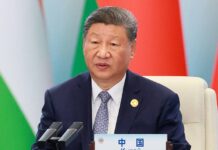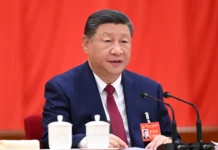HARARE – Zimbabwe recorded a historic trade surplus of US$7 million in August 2025, marking its first positive trade balance in several years, according to official data from the Zimbabwe National Statistics Agency (Zimstat).
The development has been hailed by industry leaders as a milestone achievement, signalling renewed industrial resilience, improved export performance, and growing self-sufficiency in key sectors.
Data from Zimstat shows that exports rose to US$878.2 million in August, up from US$876 million in July, while imports stood at US$871 million. Though modest, the surplus reflects a steady recovery from years of trade deficits, with Buy Zimbabwe calling it a “turning point” for the economy.
“This modest but historic surplus is a clear signal that Zimbabwe is moving in the right direction,” said Buy Zimbabwe chairman and CEO Mr Munyaradzi Hwengwere, speaking to the State media. “It demonstrates the potential of our industries to produce and export competitively.”
However, Hwengwere noted that the country’s export structure remains heavily reliant on minerals, warning that true economic transformation would require diversification and value addition.
“The concentration of our export earnings in a few mineral products highlights the urgent need for diversification,” he added. “We must increase beneficiation and build stronger local value chains.”
According to Sunday News, gold accounted for over half (52.7%) of total exports, generating US$462.7 million, while platinum, nickel, ferrochrome, and tobacco also contributed significantly. Agricultural exports such as sugar and berries, though below 3% of the total, showed promising signs of sectoral growth.
In contrast, the same month in 2023 saw a US$110 million deficit, which narrowed to US$35 million in August 2024, illustrating a consistent improvement in trade performance.
Hwengwere attributed the surplus partly to higher gold exports and reduced maize imports, noting that sustained import substitution and local production growth are key to maintaining the positive trajectory.
“When we increase local production, our imports fall. The key challenge going forward is improving production, value addition, and competitiveness,” he said.
Buy Zimbabwe reiterated its commitment to supporting the government’s efforts to strengthen local industries, enhance export competitiveness, and ensure that economic gains are inclusive and sustainable.
“This is the time to double down on production, local content, and industrial growth,” Hwengwere emphasised. “Only then can this momentum translate into lasting prosperity for Zimbabwe.”
Economists say the trade surplus underscores the success of recent policy measures aimed at promoting exports and stabilising the local economy under the Zimbabwe Gold (ZiG) framework.
— Source: The Chronicle & Sunday News (State Media)











